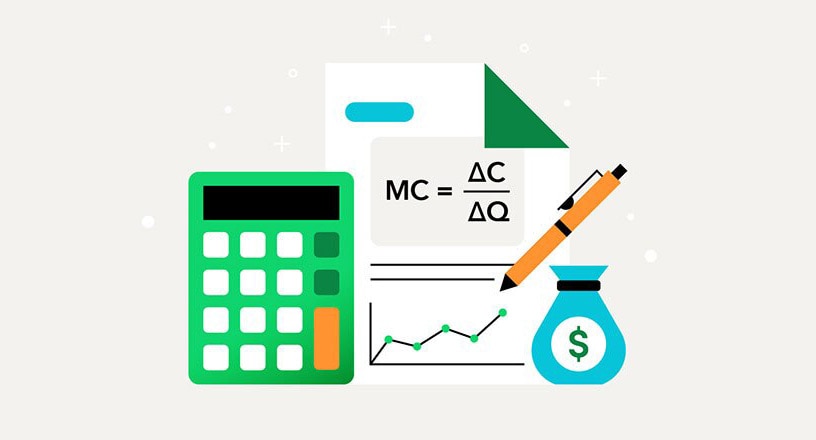Many South Africans starting a small business see an accountant as essential. Yes, making sure you’re up to date with your income, expenditure and taxes is important, but getting professional help is not always essential. Small business accounting fees can take a bite out of your cash flow just when you need it most, so let’s have a look at what an accountant does for the average small business, and most importantly, what they charge.

What’s the Cost of an Accountant for a Small Business?
Cost of accounting services for small business
As with all professionals, accountants’ fees vary. Accounting fees for a small business or startup depend on factors like how frequently you use such services (some businesses use accountants once a year to do their taxes; others use them monthly), and the expertise or specialisms demanded.
You can bring costs down by doing more of the work yourself, for example doing your books in their preferred format, and QuickBooks Online can help with that.
And remember, if you do pay for an accountant, that counts as a business expense, so it’s tax-deductible. Though they’ll probably have told you that already.
Discover more free Small Business Resources at the Intuit QuickBooks Resource Centre to help grow your business in South Africa today.
What does an Accountant do?
The basic tasks of an accountant are bookkeeping, preparing tax returns and auditing, but the exact roles differ from company to company.
As a new South African business owner, you’ll need to take a look at the kind of business you run, the complexity of your finances, the volume of sales you’re making, and many other factors to decide whether hiring an accountant is the right decision for you.
Here’s a look at an accountant’s three primary functions:
1. Bookkeeping
Bookkeeping refers to the process of monitoring and reporting how much money a company makes, and how much it spends. It involves tracking incoming and outgoing payments, keeping an eye on cash on hand and making profitability calculations.
2. Working out tax
From the profit, the amount of tax payable is calculated. Accountants can prepare tax returns and make sure the right amount of tax is paid on time. But, since they have insight into tax law, they can often also find legal ways of reducing your tax bill.
3. Auditing
An audit is a deeper look into a business’s finances to get a full picture of where money is coming from and going to. Its purpose is to maximize both business efficiency and profit. If you think your business may not be functioning optimally, you may want to look into hiring an accountant or auditor to look at how your business runs.

South African Accountants and small business owners can both use smart online based accounting software.
Do you need an Accountant for a Small Business?
In South Africa, there is no legal obligation for a small business to hire an accountant. Whether you should use one will depend on the following factors:
How many people work for the business?
Most startups have only a few employees, although this often changes quickly. Companies with fewer employees and partners are generally easier to manage financially. As your company starts to grow, you may feel the need for an accountant, even if you have not worked with one before.
How complex is the business?
If you’re a gardener who drives from home to home mowing lawns, for example, your income and outgoings are pretty simple, so you can probably do your own accounting. In contrast, an import/export startup with thousands of transactions a day probably needs accounting help. It’s important to record complex transactions correctly and your accountant can help you do this.
How big is the company?
The bigger the company, the more complicated tax becomes – and the higher the penalties for errors. As your business grows, so does the need to use a professional accountant. You might even reach the stage where you need to employ one. However, many self-employed people and micro-businesses confidently do their own books.
Are you competent with figures?
If you’re great at your job but don’t have a head for maths, let someone look over your books. Good accounting needs someone who is patient and detail-orientated. If this is you, great. If not, maybe you should think about getting outside help.
Do you have time to do the accounting?
Doing your own books can take time, so if you’re very busy, you might turn to professional help. Many entrepreneurs feel they are too busy ‘running the business’ to do their own accounting.
Do you understand tax?
Tax is often simpler than people imagine, but still requires research and working out. For legal reasons, you have to know what you’re doing. If taxation confuses you, hire a professional or you could end up in legal difficulties.
Can you use technology instead?
Accounting software like QuickBooks can address most of the above issues. All your income, outgoings and tax preparation can be carried out online, with full support from experts. If you do need to hire an accountant, give them access to your QuickBooks account – they’ll be delighted at how easy you’ve made it for them, and since you’ll already be on top of the routine paperwork, you’ll save them time and save yourself money.
So whether you run a craft brewery in Cape Town, a coffee roasting company in Kwa-Zulu Natal or are just starting out with a business from home in Jozi, QuickBooks can help you manage your business finances quickly and easily.





